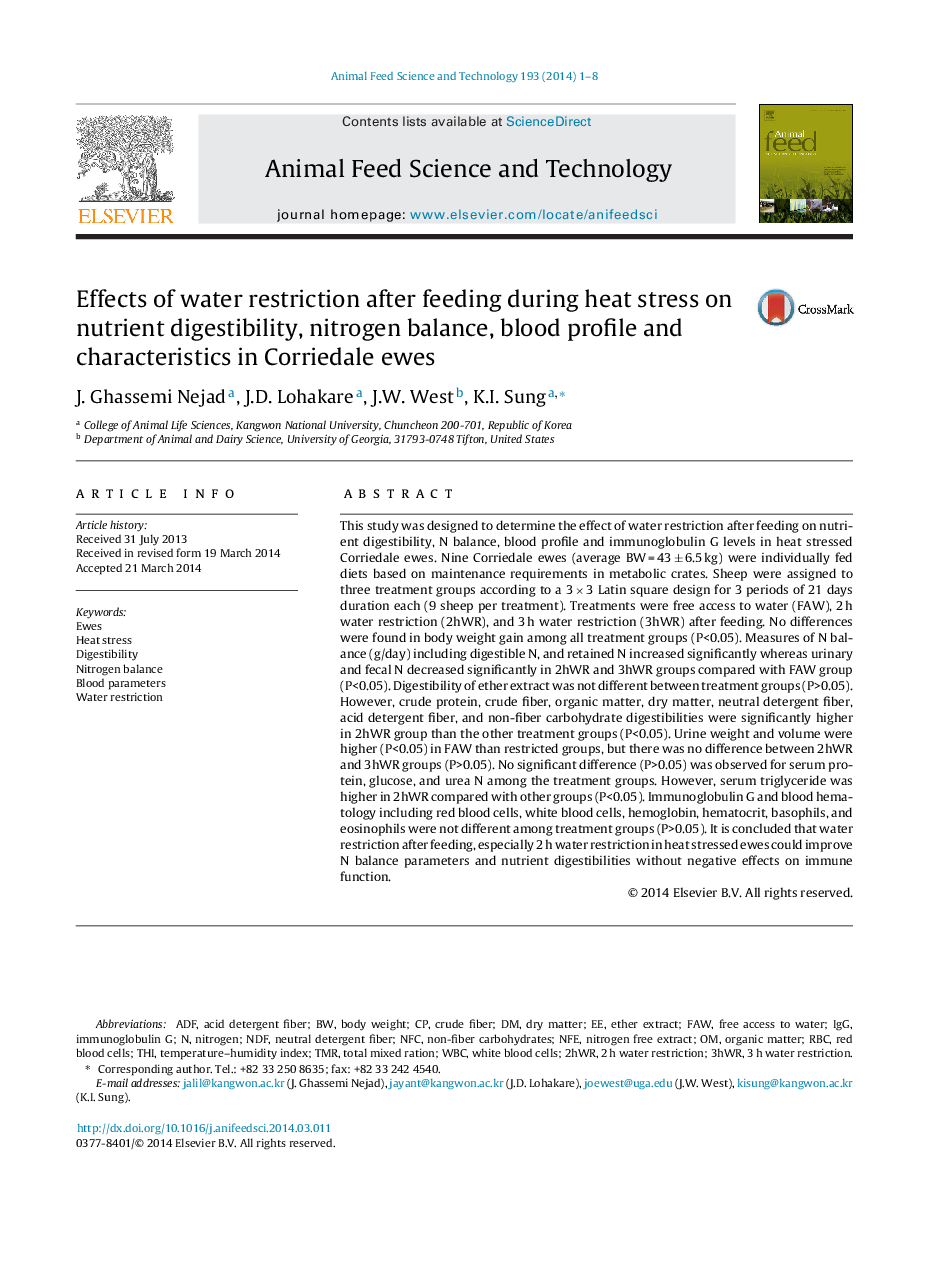| Article ID | Journal | Published Year | Pages | File Type |
|---|---|---|---|---|
| 2419580 | Animal Feed Science and Technology | 2014 | 8 Pages |
•Water restriction for 2 and 3 h after feeding increased N retention in sheep.•Water should be available to ewes less than 3 h after feeding.•IgG levels were not affected by water restriction in sheep exposed to heat stress.•Urine output (weight and volume) and fecal excretion decreased by water restriction.
This study was designed to determine the effect of water restriction after feeding on nutrient digestibility, N balance, blood profile and immunoglobulin G levels in heat stressed Corriedale ewes. Nine Corriedale ewes (average BW = 43 ± 6.5 kg) were individually fed diets based on maintenance requirements in metabolic crates. Sheep were assigned to three treatment groups according to a 3 × 3 Latin square design for 3 periods of 21 days duration each (9 sheep per treatment). Treatments were free access to water (FAW), 2 h water restriction (2hWR), and 3 h water restriction (3hWR) after feeding. No differences were found in body weight gain among all treatment groups (P<0.05). Measures of N balance (g/day) including digestible N, and retained N increased significantly whereas urinary and fecal N decreased significantly in 2hWR and 3hWR groups compared with FAW group (P<0.05). Digestibility of ether extract was not different between treatment groups (P>0.05). However, crude protein, crude fiber, organic matter, dry matter, neutral detergent fiber, acid detergent fiber, and non-fiber carbohydrate digestibilities were significantly higher in 2hWR group than the other treatment groups (P<0.05). Urine weight and volume were higher (P<0.05) in FAW than restricted groups, but there was no difference between 2hWR and 3hWR groups (P>0.05). No significant difference (P>0.05) was observed for serum protein, glucose, and urea N among the treatment groups. However, serum triglyceride was higher in 2hWR compared with other groups (P<0.05). Immunoglobulin G and blood hematology including red blood cells, white blood cells, hemoglobin, hematocrit, basophils, and eosinophils were not different among treatment groups (P>0.05). It is concluded that water restriction after feeding, especially 2 h water restriction in heat stressed ewes could improve N balance parameters and nutrient digestibilities without negative effects on immune function.
